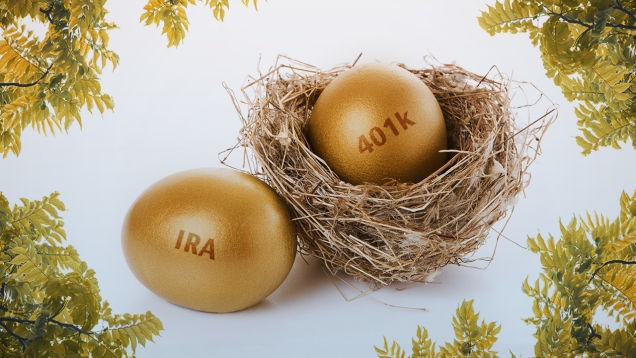6 Ways to Maximize Your 401(k) Retirement Plan
Post on: 1 Апрель, 2015 No Comment

Posted by Zachary Zawarski in 401k Articles on March 26, 2009 | Comment
In this article, we explore 6 basic things that you should do in order to maximize the amount of money you have in your 401(k) plan when you retire and need the money the most.
1) Participate
The most important thing to secure funds for your retirement is to participate in a 401(k) plan; there are no excuses! If your employer offers a 401k plan, be sure to participate in it. The sooner you start saving for retirement, the more nest egg you will have upon retirement. The more you procrastinate, the lesser nest egg you will have, or the higher rates of return you will need to save up your target goal sum of money.
2) Take the 401(k) Company Match
Most employers will be willing to match your 401k retirement savings by a certain percentage. The most basic question asked is, What percentage of my Salary should I contribute? One way to answer this question is to look at your company match. For example, if your companys rules is they will match 50% of your total contributions, up to a total of $2500 maximum. Then, you should contribute $5000 so as to get the maximum (50% x $5000 = $2500) match. Think of this $2500 as free money or as an instant return on your investment. Talk to any financial advisor and if you tell them you just got a 50% FREE rate of return on your investment, they will be shocked.
3) Plan Asset Allocation
Be sure to spread your assets over several investment types, over bonds/stocks and mutual funds. For example, if you are young and just starting out, it makes sense to invest aggressively in stocks, incase you lose some money, you have many more years to make it back. However, if you are getting older, you would be less risky in making aggressive investments decisions and would prefer to invest in bonds that provide a low but guaranteed rate of return. Once you set your portfolio, be sure to monitor it effectively. For instance, if your portfolio holds both large-cap and small-cap companies, there is a high chance your small-capitalization companies will grow at a greater rate of return. If this is the case, it might be time to re-balance your portfolio by eliminating risk and selling some of your small-caps that have already made you money, and re-investing that money to buy large caps. This ensures you are getting a good rate of return, as well as minimizing risk.
4) Diversify
Diversification is all about the old saying Dont put all your eggs in one basket. For instance, if you own 3 oil stocks, you are definitely not diversified and concentrated in the Crude oil industry. If this industry takes a hit due to negative industry news, or falling prices of oil, all your stocks will take a hit and you will lose money. You would want to diversify your funds over growing industries such as Technology, Oil and Gold industries. Also, other 401k participants make the mistake of putting all their retirement money in to their own employers stock, showing a sign of appreciation or gratitude. While it makes sense to put some of your money in your own companys stock, this should NOT exceed 25% of your portfolio. Reduction of risk is so important such that even a 50% loss in a particular investment would require a 100% on the remainder of your portfolio just to break-even.
5) Avoid 401(k) Loans
Financial advisors best advise to stay from borrowing money from your own 401(k) plan. They believe every dollar you withdraw from your 401k in the form of a loan generates lost rate of return, and greater returns from the power of compounding interest. Other financial advisors however think a 401(k) loan is better than borrowing a payday loan or using your credit card that charges super high interest rates. 401kLookUp.com has dedicated a whole article on this topic available @ Borrowing from Your 401k Plan Advantages & Disadvantages Basics of Borrowing, 4 Reasons to Borrow, Media & Myths on 401(k) Loans
6) Move Your 401(k) When You Change Jobs
It is a fact that most American workers will change jobs about 6 8 times over their lifetimes. Also, most of these people will cash out their 401(k) plans from their previous employer; this is not a good investment strategy. A better strategy is to do an IRA rollover where you manage the funds in your own Individual Retirement Account (IRA).














